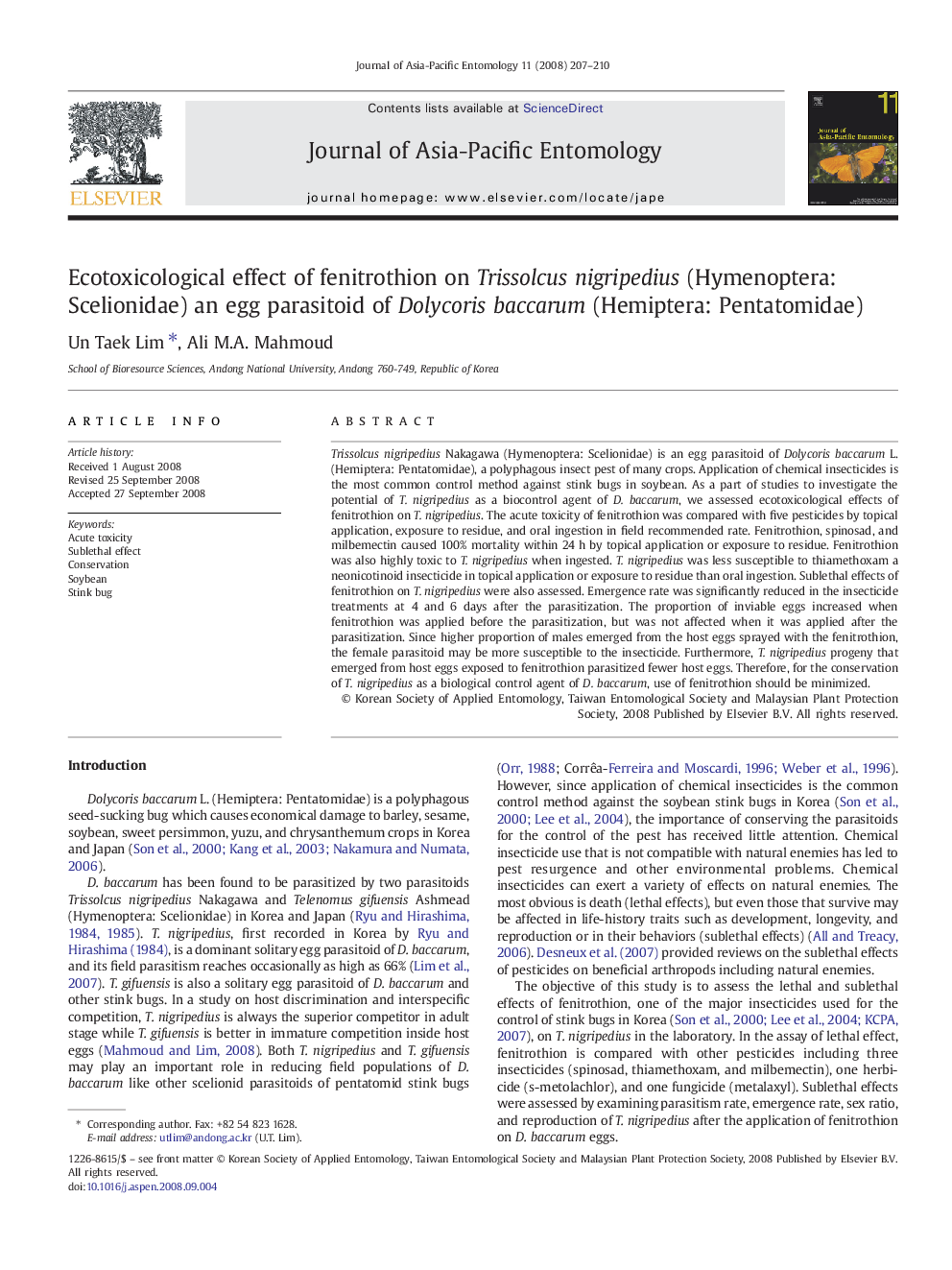| کد مقاله | کد نشریه | سال انتشار | مقاله انگلیسی | نسخه تمام متن |
|---|---|---|---|---|
| 4524880 | 1323596 | 2008 | 4 صفحه PDF | دانلود رایگان |

Trissolcus nigripedius Nakagawa (Hymenoptera: Scelionidae) is an egg parasitoid of Dolycoris baccarum L. (Hemiptera: Pentatomidae), a polyphagous insect pest of many crops. Application of chemical insecticides is the most common control method against stink bugs in soybean. As a part of studies to investigate the potential of T. nigripedius as a biocontrol agent of D. baccarum, we assessed ecotoxicological effects of fenitrothion on T. nigripedius. The acute toxicity of fenitrothion was compared with five pesticides by topical application, exposure to residue, and oral ingestion in field recommended rate. Fenitrothion, spinosad, and milbemectin caused 100% mortality within 24 h by topical application or exposure to residue. Fenitrothion was also highly toxic to T. nigripedius when ingested. T. nigripedius was less susceptible to thiamethoxam a neonicotinoid insecticide in topical application or exposure to residue than oral ingestion. Sublethal effects of fenitrothion on T. nigripedius were also assessed. Emergence rate was significantly reduced in the insecticide treatments at 4 and 6 days after the parasitization. The proportion of inviable eggs increased when fenitrothion was applied before the parasitization, but was not affected when it was applied after the parasitization. Since higher proportion of males emerged from the host eggs sprayed with the fenitrothion, the female parasitoid may be more susceptible to the insecticide. Furthermore, T. nigripedius progeny that emerged from host eggs exposed to fenitrothion parasitized fewer host eggs. Therefore, for the conservation of T. nigripedius as a biological control agent of D. baccarum, use of fenitrothion should be minimized.
Journal: Journal of Asia-Pacific Entomology - Volume 11, Issue 4, December 2008, Pages 207–210